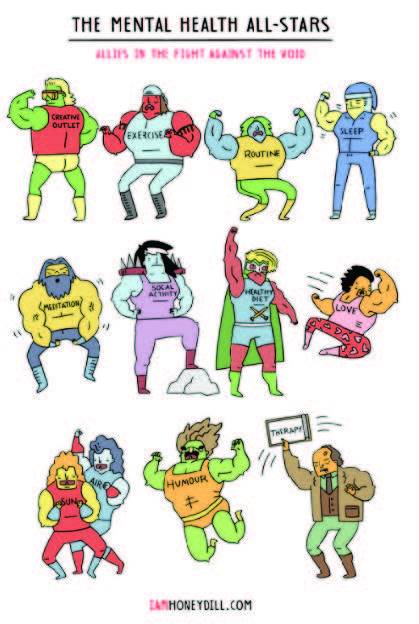
Fall 2019
Download a copy of the Fall 2019 Support Report (PDF)
Helping Kids Navigate the Way

Growing up is tough. Children face many tests and triumphs as they learn about life and progress toward physical, emotional and social maturity. For children with complex needs, growing up can be even tougher.
According to the World Health Organization (WHO):
- 10-20 percent of children and adolescents experience mental disorders
- Half of all mental illnesses begin by age 14
Some tips to help these kids along the way to adulthood include:
- Create house rules together using simple words and pictures, and post these rules in a common area
- Ensure kids have a safe, quiet place to relax when they are feeling emotionally overwhelmed
- Look for times children are succeeding and praise them
- Focus on their unique strengths and interests and incorporate these into learning new skills
- Ensure kids have a healthy diet, plenty of sleep, feel loved and safe and have regular opportunities for exercise and creative expressions such as art or music.
Helpful Resources
West Virginia Pediatric Access Line Service (WVPALS) offers support from specialty-trained faculty of WVU's Department of Behavioral Medicine and Psychiatry to health providers who treat children and adolescents. You can call 304-694-7257 or visit https://medicine.hsc.wvu.edu/bmed.
HELP4WV - A crisis service that offers immediate help for any West Virginian struggling with an addiction or mental health issue. You can call, chat or text 1-844-HELP-4-WV (1-844-435-7498) or visit www.help4wv.com.
- NADD - An association for persons with developmental disabilities and mental health needs
- SAMHSA's National Child Traumatic Stress Initiative (NCTSI)
- National Alliance on Mental Illness (NAMI)
Harby, R. (2017). Honey Dill: Mental Health All-Stars. Retrieved from http://www.iamhoneydill.com/new-stuff/2018/3/2/the-mental-health-all-stars World Health Organization. (2019). Child and adolescent mental health. Retrieved from https://www.who.int/mental_health/maternal-child/child_adolescent/en
What is Positive Behavior Support (PBS)?
Positive Behavior Support is a package of evidence-based strategies to improve quality of life and decrease challenging behaviors. It teaches people new skills and alternative responses to replace challenging behaviors. This approach is positive, proactive and focuses on preventing challenging behaviors before they occur.
Purpose of the PBS Program
The purpose of the PBS program is to support youth with serious emotional disturbances who are at risk of out of home placement to be successful in their community environments. We work with the individual's team to assess their individual needs and implement trauma informed positive behavior support. Through a person-centered approach, supportive, motivating and inclusive environments for individuals with complex needs are promoted.
Overview of Program Activities
The following program activities can help you prevent and improve challenging behaviors:
-
PBS Brainstorming
- Consulting on how to implement PBS and increase quality of life
-
Technical assistance and mentoring
- Guidance and feedback to professionals
- Solutions for challenging behaviors
-
Person-centered planning
- Develop personal goals
- Create an action plan for achieving goals
-
PBS Intensive Services
- Serve a very limited number of individuals and families statewide
- Individuals must have dangerous behaviors and no services in place to address them and be at risk of out of home placement
- Services typically last 3-5 months
-
Training and continuing education opportunities
- Limited number of trainings offered for professionals
- Social work CEU's

